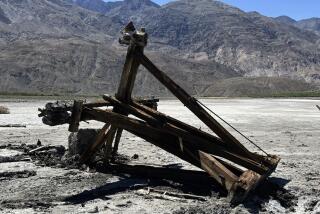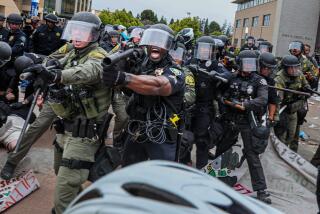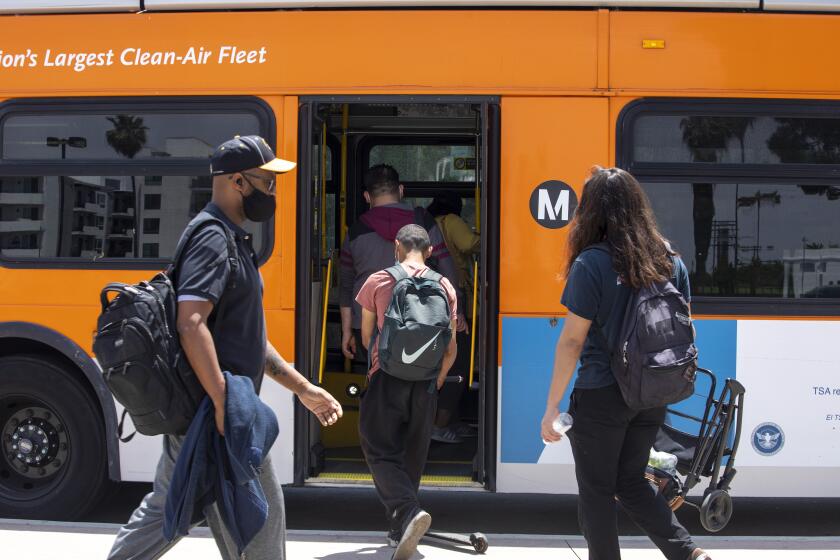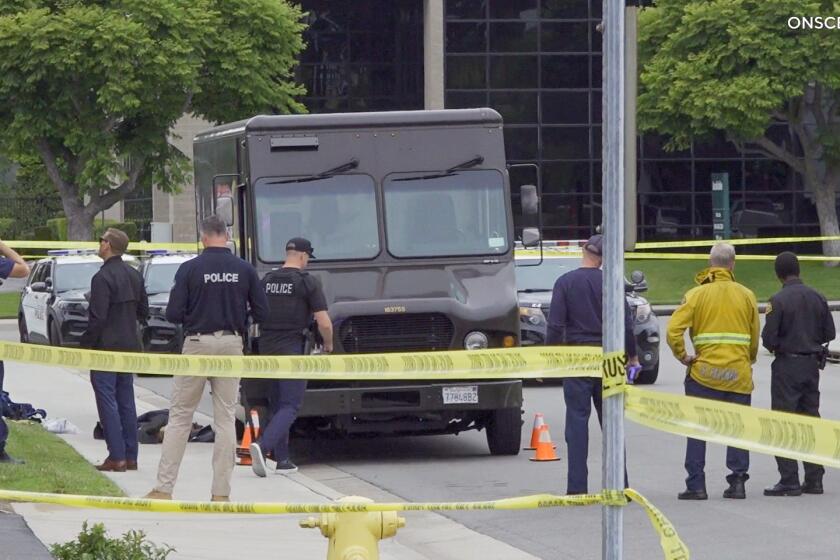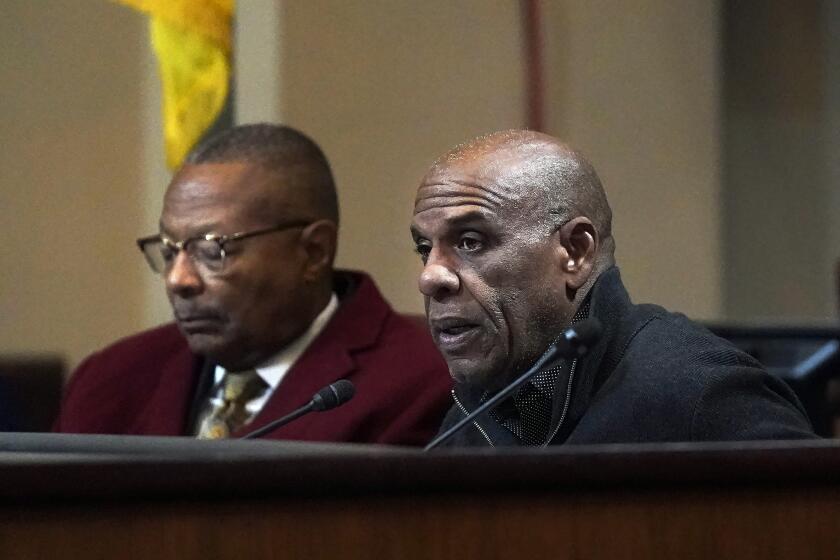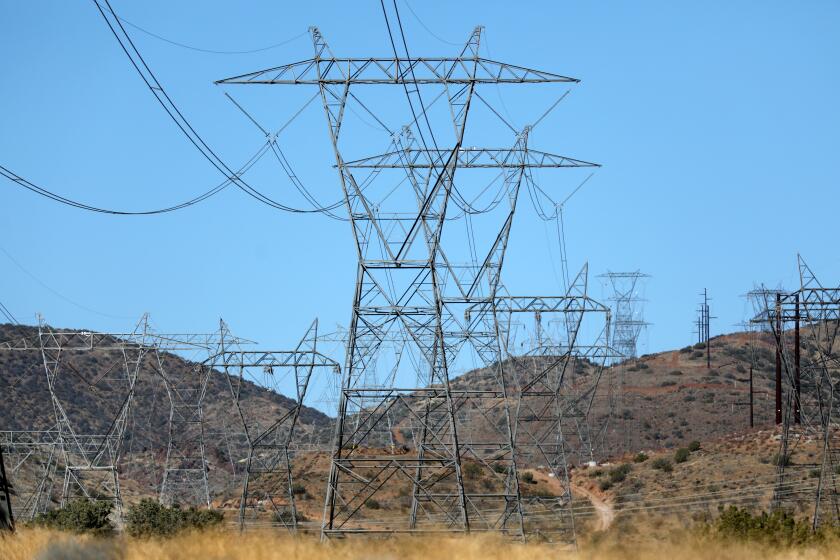Kaiser Pact Voted Down in Gesture of Militancy
In a surprising demonstration of militancy, striking workers at Kaiser Permanente hospitals in Northern California voted down a new contract that included a controversial two-tier wage proposal and vowed Friday to continue the walkout that began Oct. 27.
The Service Employees International Union, which represents 9,400 Kaiser workers from Gilroy to Roseville, said it will intensify efforts to get individuals and other unions to withdraw from the health maintenance organization. About 700,000 Kaiser plan participants in Northern California--about one-third of its total enrollment--are in unions or are family members of unionists.
Dan Danzig, a Kaiser spokesman, said the company had not seen much evidence of withdrawals so far and predicted that there will not be many. “In reality,” he added, “it would take some time to measure that.”
Southland Not Affected
Kaiser’s 2 million Northern California subscribers represent 20% to 25% of the area’s residents. The strike does not affect Kaiser facilities in Southern California, but both sides believe similar bargaining issues may surface in contract talks scheduled to begin in January.
The 6-week-old strike is likely to grow increasingly bitter.
Union members expressed anger Friday about the accidental death Thursday night of Cathy Durham, a veteran Kaiser worker in Napa who was killed when struck by a van while crossing a street adjacent to where she had been picketing.
Although the incident was not directly related to the strike, union officials said the death of Durham has touched workers. “That tragedy on the picket line may become a rallying point,” said Mike Smith, a veteran Service Employees business agent, in a telephone interview.
Additionally, the first major incident of vandalism during the strike occurred Friday when graffiti was spray-painted on a new Kaiser medical office building in Hayward. Danzig estimated the damage at $70,000.
Early Friday morning, the union announced that the workers rejected the contract by a margin of 55% to 45% even though their leaders told them that their strike benefits will be reduced this week and eliminated next week because funds have expired.
“The members of this union have chosen to remain on strike at Christmastime rather than accept a proposal which will hurt us, hurt Kaiser, and most importantly hurt the 2 million patients we serve,” said Bob Muscat, Northern California regional director of the Service Employees.
The centerpiece of the rejected proposal was a geographically based, two-tier wage system that would have paid newly hired Kaiser workers in several communities--including Sacramento, Santa Rosa, Napa and Vallejo--20% less than people hired in Bay Area cities such as San Francisco, Oakland and San Jose.
The contract also extended by two years the period it takes for employees to reach the top of the pay scale. The workers currently are paid $9 to $14 an hour depending on their jobs. Kaiser workers would have been paid a lump-sum bonus of $900 in the first year and $850 in the second year. There would have been no increase in base wages until the third year, when a 3% hike would have gone into effect.
Breakdown Not Released
Union officials declined to disclose vote totals by geographic areas, but they maintained that the contract offer was rejected even in Bay Area cities where the two-tier system would not have been used.
Gayle Armstrong, a union organizer in Sacramento, said Kaiser officials “underestimated” how much its workers opposed the two-tier plan.
Kaiser spokesman Danzig said the hospital was “disappointed” at the vote but would attempt to carry on without hiring replacement workers. “That has not been part of our strategy up till now,” Danzig said. “We will have to reconsider the options available to us.”
Danzig also asserted that “25% to 30%” of the strikers have returned to work, and he maintained that staffing is adequate to provide patients good service. “We continue to provide nearly all of the service they’re requiring,” he said.
Union officials challenge such assertions and branded Danzig’s estimate of the number of workers who have crossed picket lines as exaggerated. Other union sources said close to 20% of their colleagues are back on the job.
A union “hardship fund” has been established to aid those strikers in particularly dire financial straits.
The vote seemed to reflect a new militancy among Kaiser workers who have been among the best-paid health care workers in the country and had not struck since 1973.
Fear Seen in Vote
George Strauss, director of the Institute of Industrial Relations at UC Berkeley, said he thought the rejection vote reflects the strikers’ fear that introduction of the two-tier system would threaten their own position even though it would not have an immediate impact on them.
“It’s a little surprising that they voted it down considering the length of the strike, the fact that the hospitals are operating and that they’re about to be cut off from their strike benefits,” he said.
“We’re striking because we feel there’s a threat to our jobs with this two-tier,” said Pilar Ford, a licensed vocational nurse who is a 20-year Kaiser veteran, while picketing a Kaiser hospital in downtown Oakland this week. She and other workers said they felt the two-tier system would ultimately come to the Bay Area and that Kaiser would try to push out older workers and replace them with newer, lower-paid employees, an assertion Danzig said was unfounded.
Kaiser has maintained that it needs the two-tier system because it is losing market share to competing hospitals outside the Bay Area that have lower labor costs. The Service Employees International Union said Kaiser’s claims about wage disparities between it and other health care facilities are exaggerated.
Nation’s First HMO
Kaiser is the nation’s oldest and largest health maintenance organization, started in 1942 by industrialist Henry Kaiser as a way to provide low-cost care for his workers who were building ships for the U.S. Navy in Richmond.
The strike is likely to become a subject of greater concern in the political arena because of the magnitude of the Kaiser system.
This week at a rally in Sacramento, state Sen. David A. Roberti (D-Los Angeles) said both sides should submit to binding arbitration. Union organizer Armstrong said the union favors arbitration, but Kaiser has not embraced it thus far. Both sides said they hope negotiations can resume soon.
More to Read
Start your day right
Sign up for Essential California for news, features and recommendations from the L.A. Times and beyond in your inbox six days a week.
You may occasionally receive promotional content from the Los Angeles Times.
